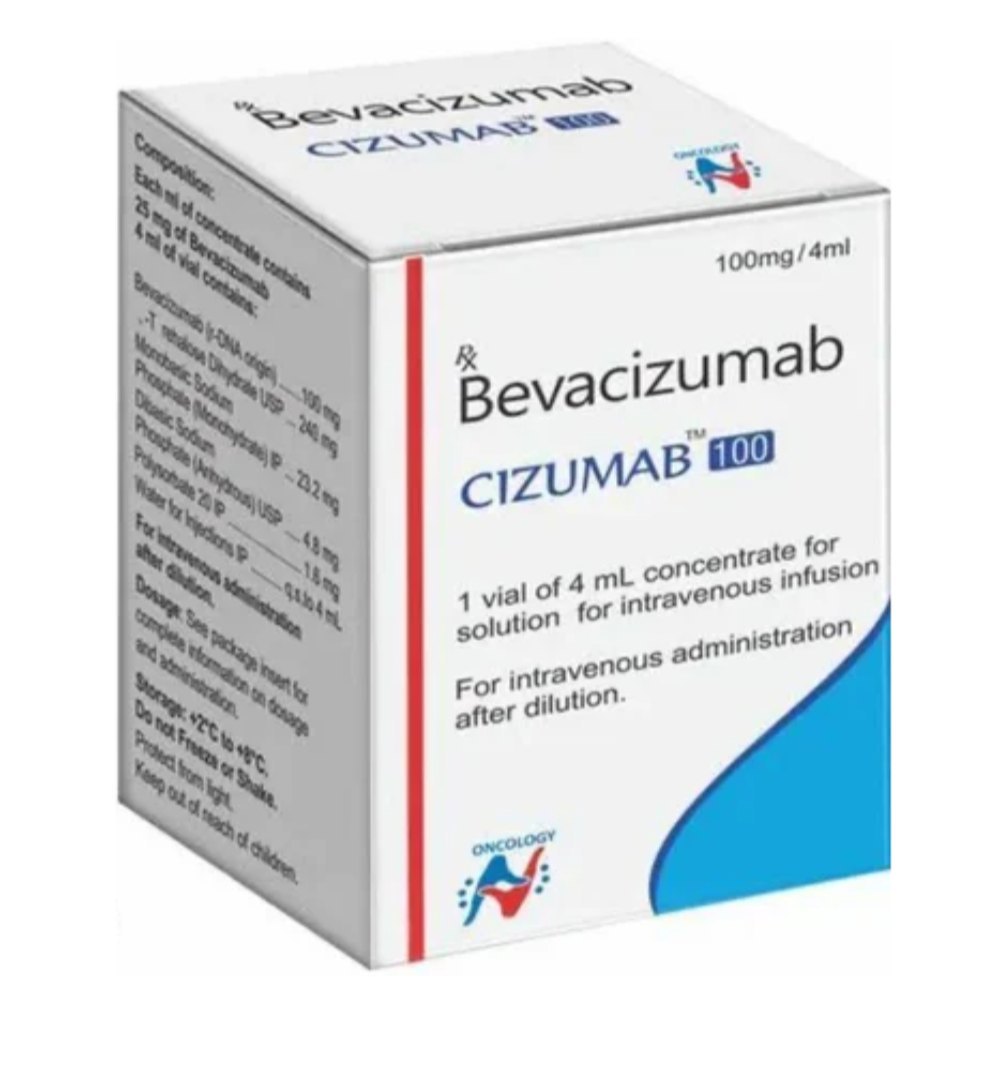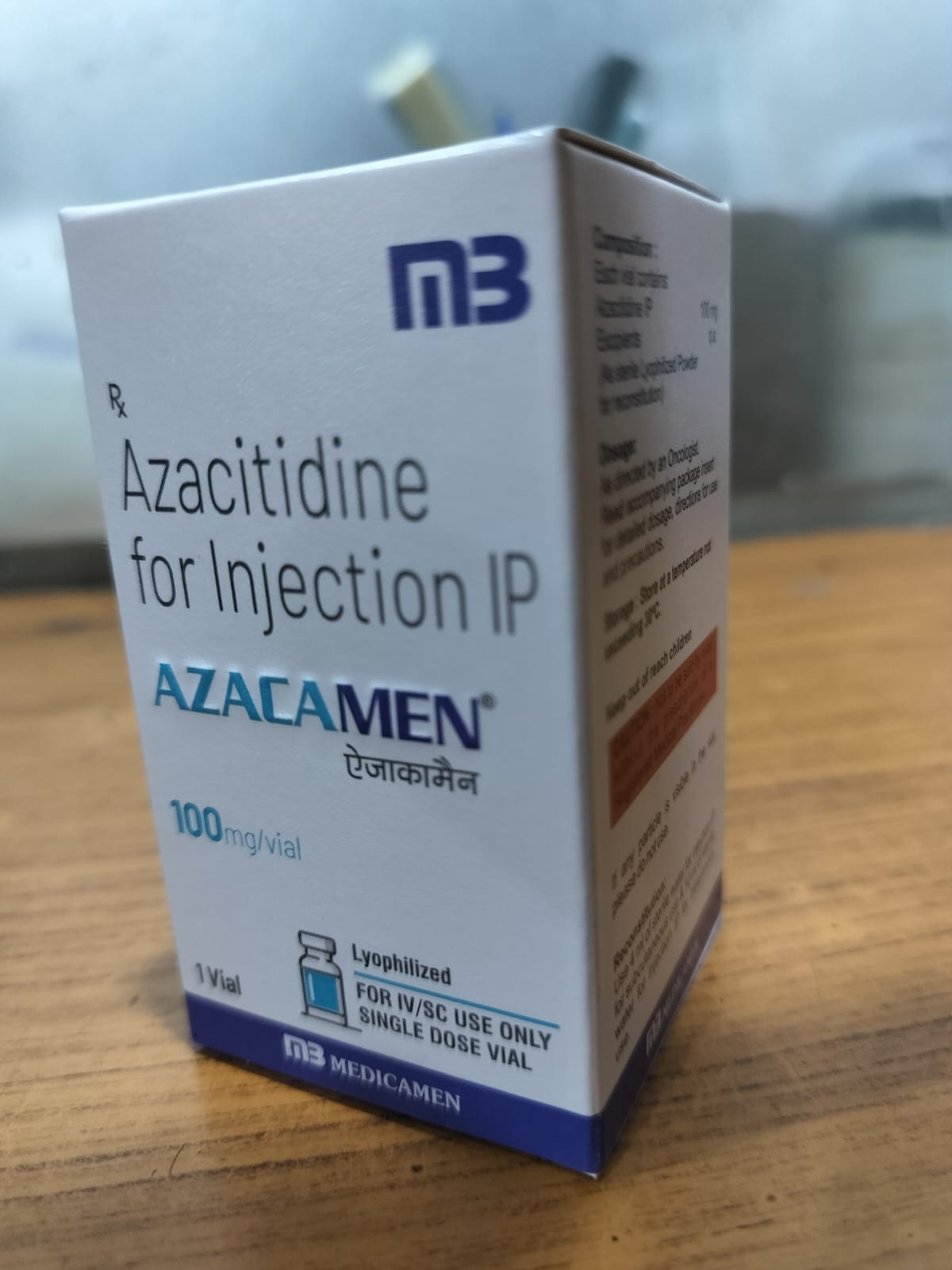Product Intro:
Cizumab is used as a targeted therapy in various solid tumors. It functions by targeting and neutralizing vascular endothelial growth factor (VEGF), a key molecule that promotes the formation of new blood vessels within tumors. By disrupting this blood supply, Cizumab effectively starves the tumor of oxygen and nutrients, halting progression. It is often used alongside chemotherapy.
Uses:
-
Metastatic colorectal cancer
-
Non-small cell lung cancer
-
Glioblastoma (a type of brain tumor)
-
Renal cell carcinoma (kidney cancer)
-
Cervical cancer
-
Ovarian cancer
-
Hepatocellular carcinoma (liver cancer)
Storage Instructions:
Store in a refrigerator between 2°C to 8°C. Do not freeze or shake. Keep the vial in the outer carton to protect from light.
How it Works (Mechanism of Action):
Bevacizumab binds to VEGF (vascular endothelial growth factor), a protein responsible for promoting new blood vessel formation. By neutralizing VEGF, it restricts blood supply to tumors, limiting their ability to grow and spread.
Side Effects:
Common side effects:
-
Hypertension
-
Nosebleeds
-
Headache
-
Fatigue
-
Diarrhea
Severe side effects:
-
Gastrointestinal perforation
-
Wound healing complications
-
Blood clots
-
Kidney dysfunction (proteinuria)
-
Hemorrhage
Dosage (Typical Recommended Dose):
Dose varies by indication. For metastatic colorectal cancer, a typical dose is 5 mg/kg or 10 mg/kg every 2 weeks or 15 mg/kg every 3 weeks, administered intravenously. Always follow physician’s prescription.
Method of Administration (How to Take It):
Cizumab is administered as an intravenous (IV) infusion. The first dose is usually given over 90 minutes, and subsequent doses may be administered faster depending on tolerance.
Precautions:
-
Avoid using before or soon after surgery (due to impaired wound healing)
-
Monitor blood pressure regularly
-
Use with caution in patients with bleeding disorders or recent history of stroke
-
Not recommended during pregnancy or breastfeeding
-
Kidney and liver function tests should be monitored regularly
Drug Interactions:
Bevacizumab may interact with:
-
Platinum-based chemotherapy (e.g., cisplatin, carboplatin)
-
Irinotecan
-
Sunitinib (increased risk of toxicity)
-
NSAIDs and anticoagulants (increased bleeding risk)
Allergies:
Patients allergic to Bevacizumab or any component of the formulation should not receive Cizumab. Symptoms of allergic reaction may include rash, itching, difficulty breathing, or facial swelling.
Overdose Information:
In case of overdose, immediate medical attention is required. Symptoms may include severe hypertension, bleeding, or neurological issues. Supportive care and symptomatic treatment are recommended.
Missed Dose Instructions:
If a dose is missed, consult your oncologist immediately. The doctor may reschedule the dose as per treatment protocol. Do not self-administer or double the dose.
Additional Notes:
- Bevacizumab may impair wound healing, so a gap of 28 days before and after major surgery is generally recommended.
- Regular monitoring for blood pressure, urine protein levels, and signs of bleeding is necessary.
- Treatment duration depends on cancer type and response to therapy.



